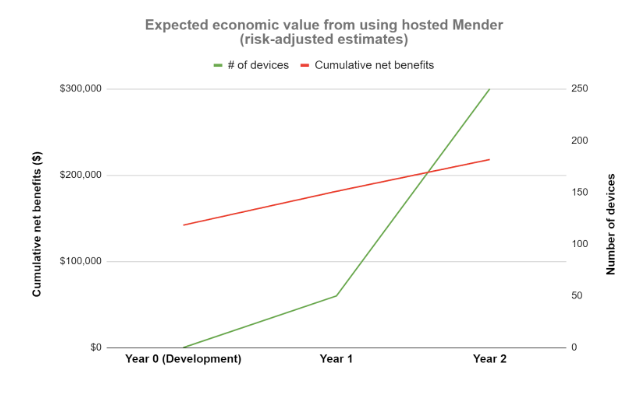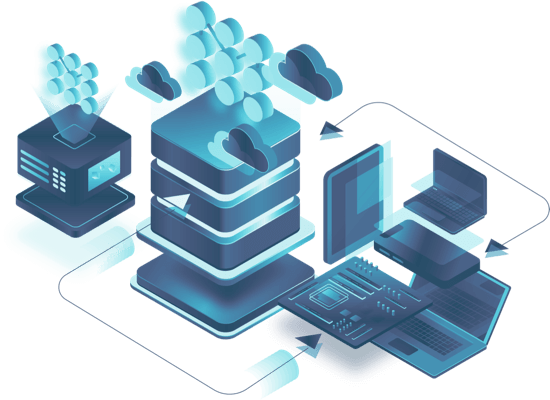Quantifying the economic value of using Software-as-a-Service to update all device software over-the-air

Securing executive buy-in and building the business case for any technology investment can be challenging. To bring profitable products and improvements to the mass markets, pressure grows to reduce costs, improve productivity and increase competitiveness. The good news is when it comes to OTA software updates developers and device manufacturers no longer need to build their own backend and service infrastructure to deploy remote OTA updates. Harnessing the power of cloud computing and combining it with Mender’s secure, efficient and risk tolerant OTA solution the update delivery process becomes simplified.
During initial phases Mender interviewed more than 100 embedded developers in various organizations to understand the cost estimates of developing a homegrown solution. While the cost estimates can be broad, a complete advanced end-to-end OTA solution built from scratch can cost a minimum of $750,000. This includes dedicated staff with at least two to four engineers working on both the client and server sides to research, design, develop, maintain, and support the solution.
Mender has developed a simple model to understand the expected economic return for an organization who wants to build a basic homegrown solution with a minimum set of features from scratch versus using Mender’s hosted or Software-as-a-Service (SaaS) solution. Figure below illustrates the expected economic value (risk-adjsuted) generated from such a solution. This basic solution is mainly tailored for low scale device deployments with no features to address Enterprise level risk management and efficiency requirements for deploying software at larger scale. It is estimated that a basic solution addressing the mid-market would cost $150,000 for the initial development of the client and server with 20% year-over-year improvement for a total development cost of $210,000. Additionally, the operational, support and maintenance costs for hosting the infrastructure would add another 7.2% of the total cost over two years starting from Year 1. The total cost savings (benefits from not developing in-house) is then compared to Mender with similar features and support capabilities. The expected risk-adjusted return on such investment (ROI) can be 1850% over two years for a relatively low scale device fleet with a payback period of three months, to recoup the initial investments. The high initial costs of the homegrown update manager comes from development to tailor it to specific product requirements. When this development is complete, the cost becomes improvement and maintenance-related. However, as the business decides to release a new product or new hardware, there will again be significant development costs to support this new product and hardware requirements. Given product release cycles of 2-5 years, the development cost will be ongoing.

To learn more download the whitepaper: How to leverage over-the-air (OTA) software updates to gain competitive advantage.
Recent articles
Complying with the US FDA and EU MDR requires software updates
IoT in 2026: Edge AI, growing complexity, and the demand for smarter updates
New Mender experimental AI-enabled feature
Learn why leading companies choose Mender
Discover how Mender empowers both you and your customers with secure and reliable over-the-air updates for IoT devices. Focus on your product, and benefit from specialized OTA expertise and best practices.



